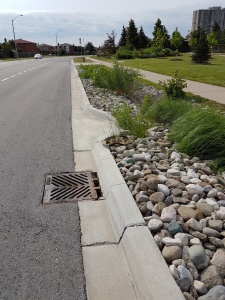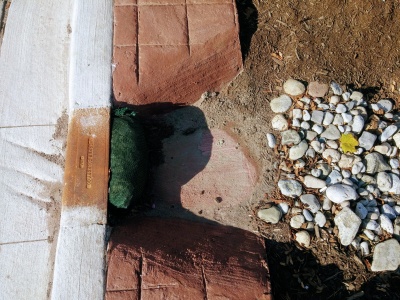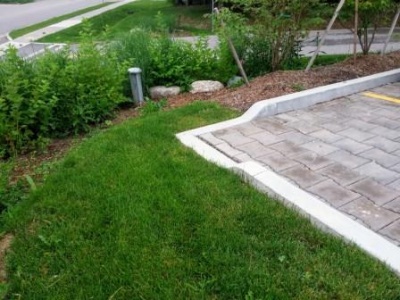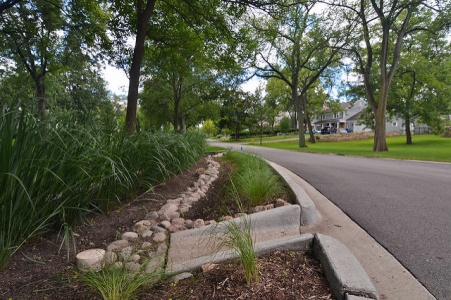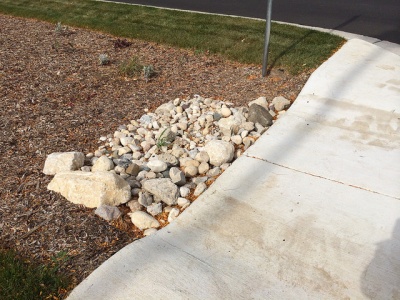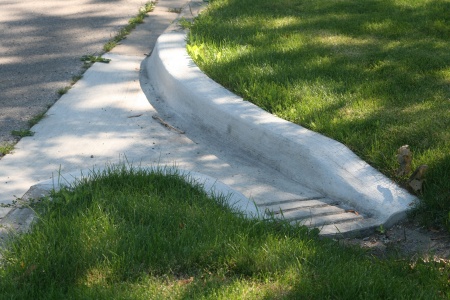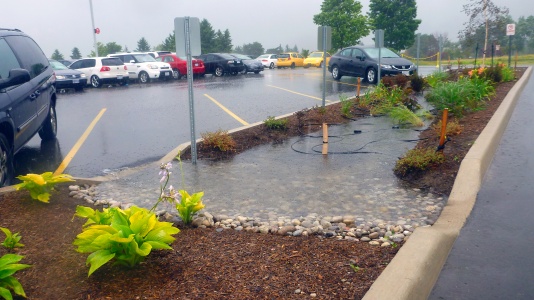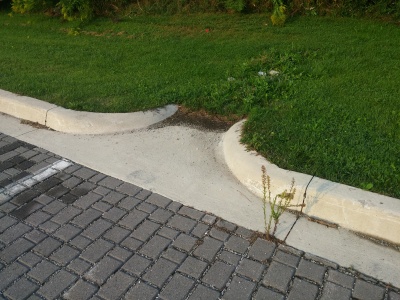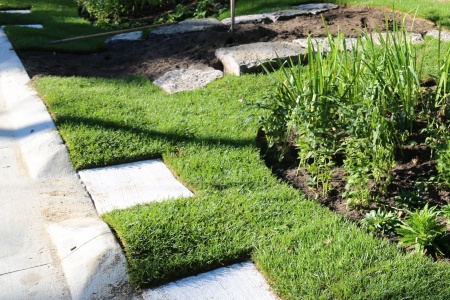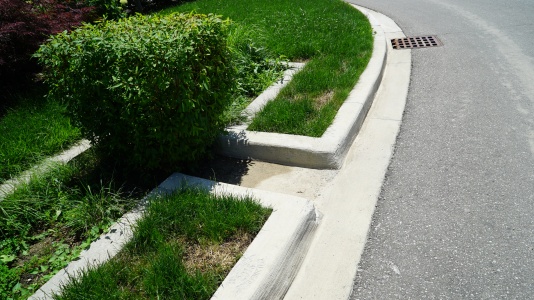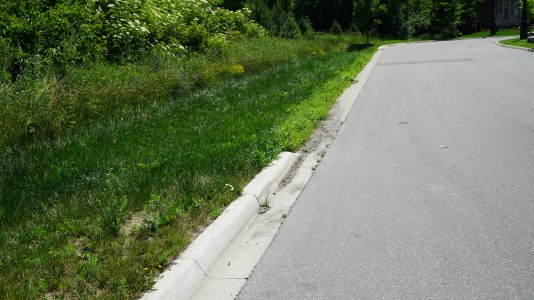Curb cuts
Sizing[edit]
To completely capture linear flow travelling along a gutter perpendicular to a curb inlet, the inlet must be of width::
Where:
- WT is the width of the inlet in m,
- Q is the flow perpendicular to the inlet in m3/s
- S0 is the longitudinal slope
- n is Manning's 'n' (between 0.012 and 0.016 for concrete, depending on surface treatment),
- Sx is the cross slope
Where the intention is to capture only a proportion of the flow, the ratio of flow entering the curb inlet may be calculated::
Example[edit]
A curb cut of 3 m is proposed as an inlet for an offline bioretention cell receiving runoff from an adjacent roadway. The gutter and the curb are made from smooth concrete with Manning's 'n' = 0.013. The x-slope is 3% and the longitudinal slope of the road is 2%. The design storm produces flow of 0.08 m3/s.
The width of inlet to capture 100% of this flow is::
The proportion of water entering the bioretention cell under these flow conditions would be::
48% of the 0.08 m3/s flow would enter the bioretenteion cell through the inlet as designed.
Curb cuts gallery[edit]
This curb cut has been sawn into existing concrete as part of a retrofit. Note the temporary (erosion log) and permanent stone erosion control measures in place. Mississauga Road, ON.
Curb cut used as a controlled overflow route from permeable pavements to a bioretention facility with monitoring well, Lake Simcoe Region Conservation Authority, Newmarket, ON.
Curb cut into a bioretention facility in Brown Deer, WI. Stone is used to reduce erosion around the inlet area. Photo credit: Aaron Volkening
Stone lined inlet at IMAX site in Mississauga
The grading around this inlet prevents flow in the correct direction. i.e. from the pavement onto the grass. Not too critical in this example, as the surface is permeable pavements.
Curb cut into a rain garden on a green street in Newmarket, ON.




